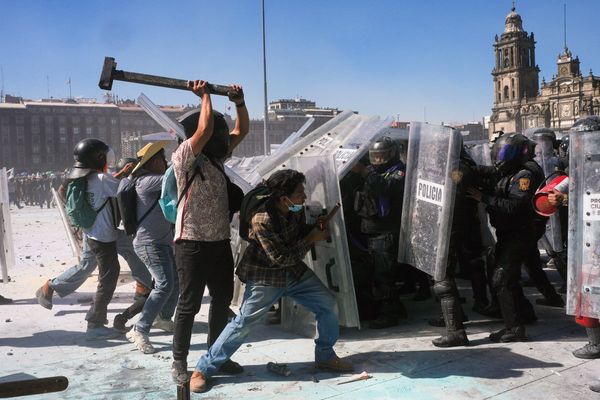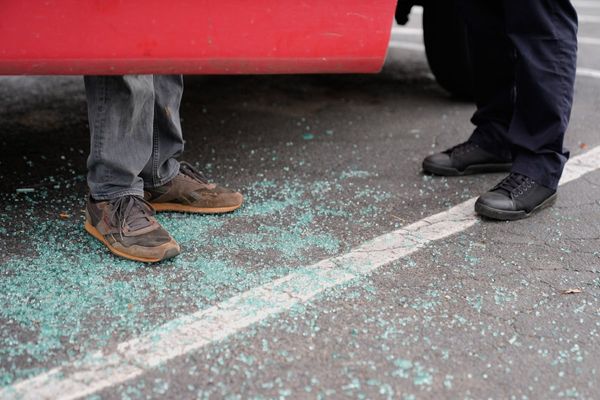
How Wellington Phoenix would have loved a home game this weekend. In the aftermath of FFA’s surprise announcement that it wouldn’t be granting the club a 10-year A-League licence extension – offering instead a four-year deal that you get the impression FFA, with it’s wandering eye, doesn’t really want the Phoenix to take up – a home game at the Cake Tin would have given Wellingtonians an opportunity to rally behind their team, to stick a finger up at FFA or, with double satisfaction, both.
Instead the Phoenix will be away to Melbourne Victory where it will be left mainly to the Victory fans to show solidarity with the Phoenix. Going by the response from the football public since Monday’s blunt statement by FFA – a statement which, as it preceded a three-day media blackout, seemed as cold as the dumping of a lover by text message – it seems fair to expect there will be some recognition of the Phoenix’s plight.
For all those acknowledging the strangeness of having a New Zealand team (one from a different confederation, no less) in an Australian league there appears to be many more who see that the cost of rectifying this anomaly is too great; perhaps even morally questionable, insofar as morals and big business can ever be used in the same sentence. One can argue that a New Zealand team should never have been invited in the first place into the nascent A-League back in 2005 but invited they were, out of necessity. So to then dispense of them (albeit a different club), particularly one that is solvent and performing well on the field, looks more than a little callous.
Since the FFA’s initial statement David Gallop has given ultimatums and talked about “metrics” but he has done little to allay suspicions that the marginalising of the Phoenix is being done to clear space for a new Australia-based club, even if there are no guarantees that such a club – say, a rumoured southern Sydney team playing out of the Sutherland Shire – would replicate the startling success of the Western Sydney Wanderers. And it would be folly, too, if this is what they’re thinking, to expect those from Wollongong and the South Coast to jump on board a team playing out of the Shire. The Illawarra escarpment acts as more than just a geological barrier. So to dump the Phoenix for a new team, one whose location, name and colours haven’t even been decided yet, is a big gamble.
Starting a football league almost from scratch was never going to be easy. And franchise football – if that’s what the A-League delivered, early on at least – comes with built-in problems, as the headstones of the North Queensland Fury, Gold Coast United, and New Zealand Knights attest. But at some point, and it happens faster than we might expect, a franchise becomes a club in the same way a new house becomes a home. It’s only been five years since Patrick Barnes fully threw his lot in with the Phoenix but the senior member of Phoenix’s supporter group, Yellow Fever, has taken Monday’s news hard. Acknowledging that it’s difficult to articulate what his club means to him he told me “the fact that the announcement brought me to tears sums it up”.
As much as a club belongs to its players, staff, administrators and owners it belongs to the fans, and Barnes says it will be “gutting” if the Phoenix are no longer a part of the A-League. The action on he field, he says, provides pleasure and sometimes even joy, but just as important is the camaraderie in the stands, the tribalism, the sharing of a common passion among an eclectic group that would otherwise have little contact with each other. A club is a community as much as anything else.
“We will be gutted if the Phoenix are no longer part of the A-League,” says Barnes, who is finding it difficult to see a happy ending to this story. “As much as it would hurt I think the club would be within their rights to pull the plug now, because [to take up a four-year licence] might be delaying the inevitable and that wouldn’t be fair on players or the fans. I’d love to see them apply for it, to see football in Wellington for four more years, or potentially longer, but I think they’d be silly to keep throwing money at something that feel wouldn’t exist in four years.”

Kiwi footballing great Wynton Rufer, who grew up in Wellington, played for the NSL-based New Zealand Kingz after a stellar European career, and who now runs coaching schools, is more optimistic. When I asked him what effect the possible absence of an A-League team would have on New Zealand football he refused at first to even consider it, saying that the A-League’s (and TV’s) access to the 4.5 million strong New Zealand market would ultimately save the Phoenix.
“The Phoenix don’t have fantastic crowds, and there are other boxes they haven’t ticked, and if they were getting 25,000 every game we wouldn’t even be talking about this,” Rufer says, “but I just can’t see them being let go because of the size of the potential TV market. I’m sure the Phoenix will at least take up the four-year offer.”
And if they don’t? “Life will go on and New Zealand football will continue to battle away. Of more interest is what’s happening with Fifa and how any reform will pan out, and whether Oceania will be absorbed by Asia or whatever. That’s probably what needs to happen, and it would be more of an influence on how New Zealand football moves forward than New Zealand having a team in the A-League. New Zealand football moves at turtle’s pace. Having the Phoenix in the A-league makes it a slightly quicker turtle.”
If there are big decisions for Fifa to make, the Phoenix’s owners Welnix have their own doozy: pull stumps at the end of the season or take up a four-year licence and do all they can to improve their crowds, memberships and ratings and then hope that the FFA offer them another, longer extension beyond that. But given A-League boss Damien de Bohun has said that “10 is the right number of clubs” for the foreseeable future, and given the A-League’s head has been turned by the saucy silhouette of a new player on the horizon, will anything the Phoenix do stave off the guillotine?
At times one sees the A-League as a burgeoning new town, a brightly-painted, bustling borough through which locals walk jauntily, tipping their hats to each other, delighting in their shared good fortunes. At other times, however, times like this, times that include the troubles we’ve recently seen at Newcastle and Brisbane, we take another look and see that so many of the buildings in this town are just movie-set facades, frontages with nothing but open air behind them.
For a club that all of a sudden has the look of a dead man walking it’s fitting that the Phoenix’s next home game will be Friday the 13th (of November). But by then the club’s future in the A-League may be known and what might have been a show of defiance could be something akin to a wake.







